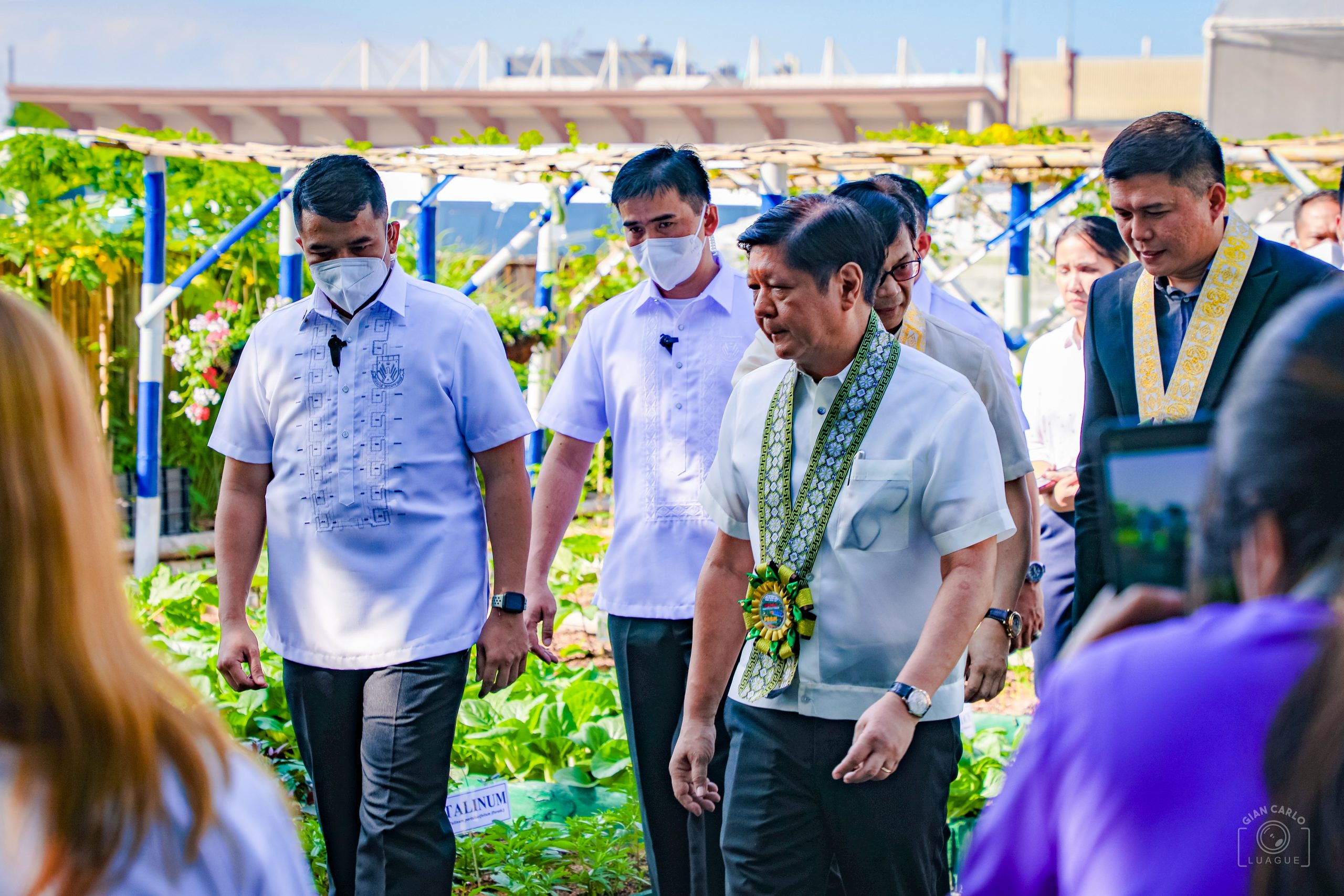
President Ferdinand R. Marcos Jr., who concurrently serves as the Agriculture Secretary, underscored the administration’s sincerity and resolve to address the issues on food supply during the launching of the HAlina’t magtanim ng Prutas At Gulay sa Barangay Project | Kadiwa Ay Yaman | Plants for Bountiful Barangays Movement (HAPAG KAY PBBM) at the Rizal Park Open Air Auditorium, March 1.
Geared towards achieving food accessibility, affordability, and security in the Philippines through urban and peri-urban agriculture and community engagement, the HAPAG KAY PBBM program was made possible by merging two government initiatives on urban agriculture: the Department of the Interior and Local Government (DILG)’s HAPAG sa Barangay Project and the Department of Agriculture (DA)’s Green Revolution 2.0: Plants for Bountiful Barangays Movement (PBBM), which was led by the Bureau of Plant Industry (DA-BPI), the National Urban and Peri-Urban Agriculture Program (DA-NUPAP) and the High Value Crops Development Program (DA-HVCDP).
“With this joint collaboration of DA’s PBBM and DILG’s HAPAG, the project will intensify the capacities of barangays through the LGUs towards sustainable agriculture,” shared DA Senior Undersecretary Domingo F. Panganiban during his opening speech.
The newly-launched program also promotes environmental conservation through the use of eco-friendly urban agriculture practices and technologies such as aeroponics, aquaponics, container gardening, fruit-bearing tree planting, hydroponics, square-foot gardening, and vertical gardening.
Also recognizing the innovative nature of the said program, President Marcos Jr. further encouraged institutional stakeholders in agriculture to formulate and implement more innovative solutions to address hunger and to ensure food availability for every Filipino.
He also acknowledged the crucial role of the barangays in the success of the HAPAG KAY PBBM program, saying, “Given their awareness of the needs of their constituents, they are well-positioned to find and implement solutions that best fit their context, their conditions, and their circumstances. This program is yet another step towards strengthening the capacity of barangays to adopt sustainable agriculture initiatives even in the small scale.”
Thus, the President encouraged the public to support and participate in the said program to help communities recover from the impacts of issues in the agriculture sector, which include calamities and the rising prices of commodities.
“As this initiative consolidates the programs of [DA and DILG] on urban agriculture, I am confident that we will further increase our capacity to take part in our goal to address poverty, ensure food security, and protect the environment even at the barangay level. Rest assured that this government remains committed to providing our people with access to fresh, nutritious food at an affordable cost. Given the interactive programs on food security and community-building, we will certainly emerge victorious, bring forth a better, more bountiful, and food-secure future for all Filipinos,” he concluded.
The President, along with national and local government officials, also visited the newly opened urban garden and KADIWA ng Pangulo stalls at Rizal Park, Manila.
Now with about 500 stores nationwide, the KADIWA ng Pangulo—previously launched as Kadiwa ng Pasko in Quezon City last December 1, 2022—offers high-quality, safe, and affordable agricultural products to local communities and low-income families and provides market linkage to micro-, small-, and medium-scale enterprises (MSMEs). ### (Krystele Ymari Vergara, DA-AFID)













